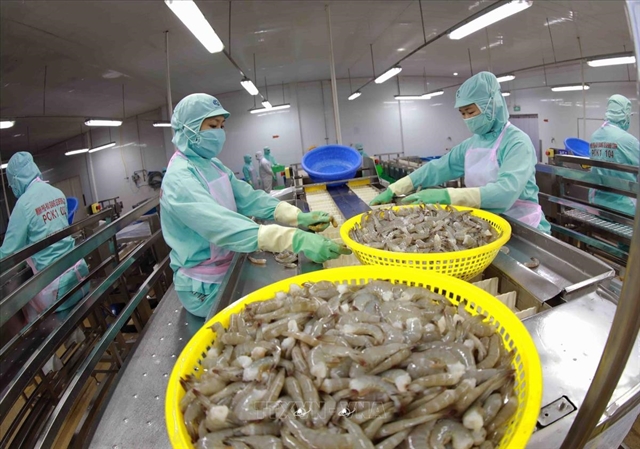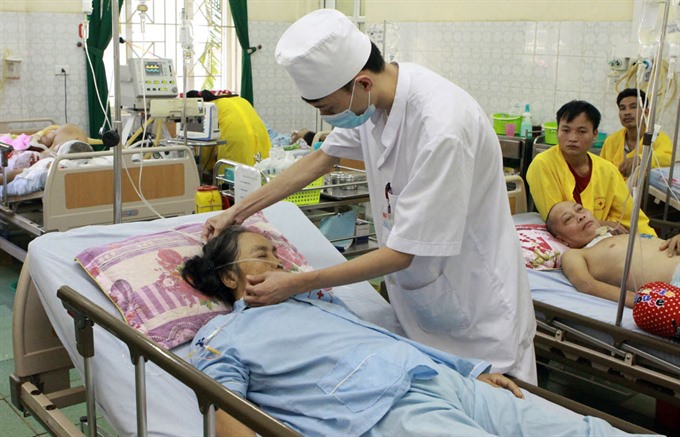 Society
Society

Doctors warn that using same non-sterile hand gloves or medical instruments for several patients may spread germs. Risk of disease is detected not only at clinics but also hospitals, especially through respiratory or contagious routes.
 |
| A doctor treats a patient at the Thanh Nhàn General Hospital in Hà Nội. — VNA/VNS Photo Dương Ngọc |
HÀ NỘI — In only three months, nearly 80 children under 15 including a 6.5-month-old boy from Khoái Châu Commune, Hưng Yên Province were diagnosed with genital warts, a sexually transmitted infection.
Doctors warn that using the same unsterilised gloves or medical instruments on several patients may spread germs and diseases can spread in clinics and hospitals.
The more patients, the greater chance of infection
A 2014 measles outbreak in Hà Nội killing 150 children was an example of infections in a hospital. On April 17, 2014, alone there were 33 child patients transferred from other departments for measles treatments to the Hà Nội National Children Hospital, with six times that number infected.
Respiratory diseases such as measles, flu or tuberculosis spread the easiest. It is also possible for contagious diseases like hepatitis or HIV to spread via gloves used for different patients, according to Nguyễn Trọng Khoa, Deputy Head of Department of Medical Examination and Treatment Management under the Ministry of Health.
“The more patients, the greater chance to be infected. It is vital that doctors rinse their hands after having contact with patients”, he added.
One pair of gloves for several patients
“Wearing gloves means doctors are not afraid to touch wounds. Therefore, they may transfer germs or viruses to other patients if still using the same pair”, an expert from Bạch Mai Hospital told Tuổi Trẻ (Youth) newspaper.
Recent surveys show that about 30 per cent of medical workers don’t clean their hands before treating patients, with doctors most likely to disobey sanitation regulations.
Dương Đức Hùng, Head of Integrated Planning Department at Bạch Mai Hospital said public health facilities guarantee better sanitary procedures as most devices are anti-infection.
Single-use surgical gowns are used at the National Cardiovascular Institute under Bạch Mai Hospital since blood with HIV or hepatitis B on doctors’ gowns poses a threat of infection. The ‘one patient, one stethoscope’ practice is also applied.
Control recommendations
According to the Ministry of Health, being infected while in hospital adds up to 15 days to normal treatment and costs patients VNĐ3 million (US$150) more.
Doctor Võ Phạm Trọng Nhân, Deputy Head of Peripheral Nerve Surgery Department under Nguyễn Đình Chiểu Hospital, expressed concerns about infections at hospitals, taking the case of genital warts in Hưng Yên Province for example.
He implied that as well as public hospitals, hygiene in private clinics has to be improved, however hygiene controls are largely under the control of private hospitals themselves, perhaps warranting an investigation of private clinics. — VNS




